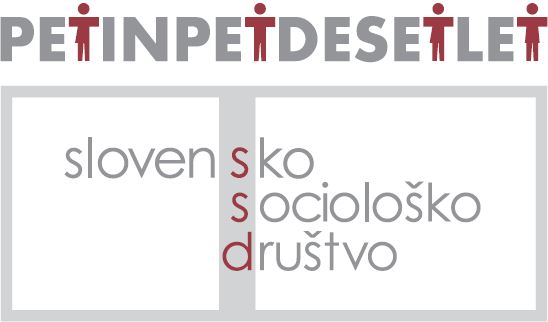Social Science Forum 87 (XXXIV)
Family caregivers of elderly parents and doing gender
Zdenka Šadl
ABSTRACT: This article employs a gender-sensitive, qualitative and constructionist approach toexplore the caregiving experience from the perspectives of women and men who provide informal caregiving services for an ageing parent, with special attention to cultural ideals of femininity and masculinity. Using concepts from the ‚doing gender‘ perspective and the concept of hegemonic masculinity, the author explores how the family caregivers in her sample ‚do‘ both masculinity and femininity. Qualitative analysis of the transcripts was performed to identify the major themes relating to family caregiving activities, and the ways in which the discursive practices of caregivers reflect how they perform gender. While the women and men in this study did not engage in deep renegotiations of gender identities and relations, they did develop a new identity that supports their caregiving tasks and experiences.
KEY WORDS: daugthers, sons, family caregiving, elderly parents, gender, hegemonic masculinity
>> Download
Where do cultural workers live and act? The spreading and dispersal of cultural spaces in Slovenia
Jani Kozina, David Bole
ABSTRACT: The article aims to examine the dynamics of the spatial distribution of cultural workers at various spatial scales in Slovenia. The dispersion of cultural workers is studied using a quantitative analysis of their place of residence and work. The results show the level of cultural agglomeration at the regional scale corresponds proportionally to the level of regional development, while there is greater concentration at the localevel in more urban settlements. Surprisingly, there has been a spatial expansion and dispersion of cultural workers in recent years. In addition to the economy and real-estate prices, reasons for this may include the income inequality of cultural workers, the non-urban character of the Slovenian way of life and the specific spatial structure with good accessibility and mostly smaller settlement types.
KEY WORDS: cultural industries, creative industries, artists, creativity, geography of human resources
>> Download
Intimate media and the generational structure of feeling: personalised, fragmented, dispersed
Maruša Pušnik, Breda Luthar
ABSTRACT: The article argues for audience studies that draw on the analysis of artefactual, spatial, temporal and sensorial aspects of media consumption and build on so-called medium theory and the theory of practice in sociology. In part two of the article, we interpret the results of a qualitative empirical study regarding the daily 62 DRUŽBOSLOVNE RAZPRAVE, XXXIV (2018), 87: 61 – 84612, XIV(0 18X) 1V7 X:V7-43 use of media technology among young people aged 19–29 years. The study finds that the circumstances in which digital media have colonised all spheres of public life and in which online social life has become completely naturalised have led to constant online connectivity as well as highly fragmented and dispersed communication practices of users as they move among different media. The analysis of media consumption diaries points to radical mediatisation, which is playing an important role in the changing generational structure of feeling.
KEY WORDS: audience, intimate media, mediatization, everyday life, theory of practice, generation
>> Download
Addressing intersectional vulnerabilities in contemporary refugee movements in Europe
Sanja Cukut Krilić, Simona Zavratnik
ABSTRACT: The article explores the heterogeneity and complexity of contemporary refugee movements in Europe by analysing in particular the situation along the Balkan corridor, investigating the complex intersections of gender, age, ethnic affiliation, and other aspects reflecting the situation of individuals on the move. It focuses on construction of the vulnerability of individuals and social groups. Unlike restrictive policies, which reduce mobility, we perceive migrations as autonomous processes. Through an analysis of secondary data, reports and research, the article challenges the policies of selecting migrants based on their legal status, using restrictive borders and transferring the external borders of the Schengen area into the internal territories of the member states – in our case, along the Balkan corridor.
KEY WORDS: intersectional vulnerabilities, migrants and refugees, Balkan corridor, gender, unaccompanied minors
